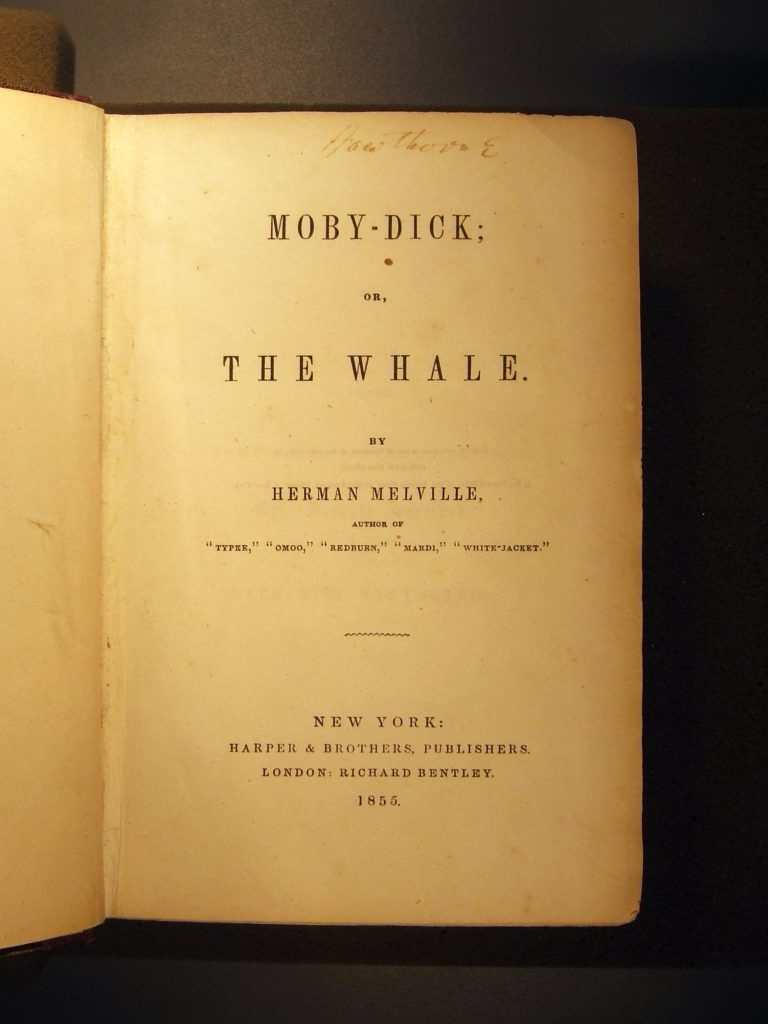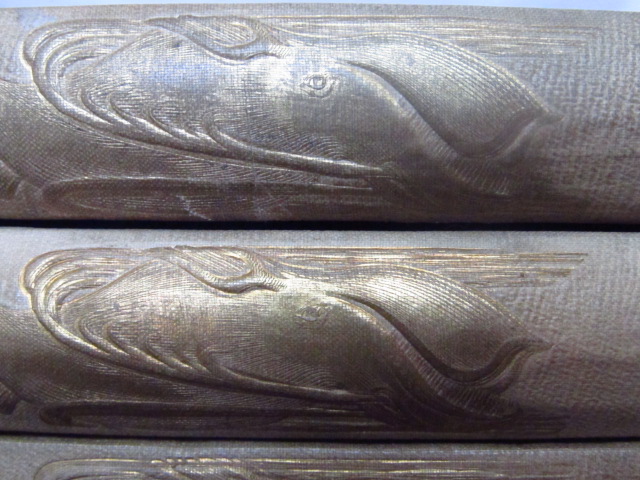I’ve never read Moby-Dick. I know! I work at The Rosenbach, where one of the world’s best collections of Herman Melville’s work resides, and I haven’t read his most famous book. I’ve admired his bookcase many times (if you haven’t seen it, come on one of our guided house tours!) but have always had the vague thought that Moby-Dick was stuffy, boring, outdated, and really long. I’m not sure where I got these ideas, but after reading the first 150 pages, I can tell you that they are all wrong.

Moby-Dick, stuffy? You have to be kidding me! I’ve laughed out loud at points—that’s not something I do often while reading. Ishmael’s interaction with the landlord at the Spouter-Inn is delightful; there is a mischievousness to it that takes a while to play out and is not often found in writing. Nor is this book boring. In its simplest form, it is a book about whaling, and whaling is anything but boring. Imagine agreeing to work on a ship that plans to be away from land for the better part of three years or longer, and the whole purpose of that trip is to catch and kill an animal weighing up to 91 tons! And doing all of this without any of our modern amenities, no GPS to help you know where you are in the ocean, no weather satellites to warn you of an approaching storm.
While the technological aspects of the book are outdated, it doesn’t matter. Like any classic literature it surpasses the differences of time and makes you forget that it was written over 166 years ago. I’m also not sure why I thought this book was so long. It’s not short by any means, but compared to say Ulysses the 427 pages of Moby Dick seem very manageable especially when some of the 135 chapters are less than a page long.

You may be wondering why I’m reading a book that I thought was stuffy, old, and boring. Well, to be honest, two of my coworkers bullied me into joining our Moby-Dick reading course with them. Turns out I should thank them for that, as I am really enjoying this novel.
I encourage everyone to try reading Moby-Dick. If you don’t like it, you can stop reading—but I bet you won’t. Whether you’ve read the novel or not, please join us on Saturday, November 18th from 4:00-8:00 p.m. for our Moby-Dick Celebration. Enjoying listening to parts of the book read aloud, sea shanties sung by Jonathan Houlon, punch and snacks, and the chance to nerd out with other Melville enthusiasts. Think of it as a miniature indoor Bloomsday: stop by for half an hour, or stay for the whole thing.
If you’re looking for a way to read deeper, I also encourage everyone to join a Rosenbach Course. These guided discussions are all taught by experts and offer a great opportunity to explore books and topics that interest you (or even those that intimidate you), and they are a wonderful way to make new friends and expand your learning.

Fun fact: the whale stamped on the spine of this first edition is not a sperm whale like the infamous Moby Dick.

Why call Moby Dick infamous? He was protecting his own life against the crazed Captain Ahab.